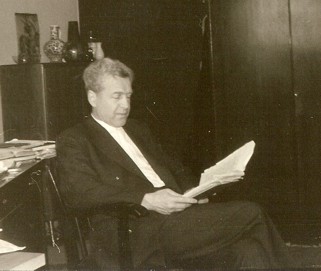|
also be found in those of our own day. This is to presuppose "that in the same philosophemes there must be some
truth and that this is to be extracted". As improbable as it might appear given the significant achievements of
Kant scholarship in the nineteenth and early twentieth centuries, Ebbinghaus and Reich were the first in the study
of both Kantian philosophy and its historical reconstruction to achieve an understanding of this philosophy in its
entirety which does it full justice. Furthermore, Ebbinghaus showed great openness in allowing himself to be
instructed in public by his former pupil and present friend in the subject of philosophy and even in Kant.
Of the four independent monographs on Kantian philosophy published by Reich, the sensitive reconstruction of the
system of logical basic functions and the proof of the completeness of the Table of judgements (and, as a result,
of the categories of transcendental philosophy) through their derivation from the principle of the originalis the most
important. Right up until his death, Reich considered it his mission to supplement this work dedicated to the
illustration and justification of the system by means of an historical elucidation of its genesis. In "Kant and Greek
Ethics" Reich furnished proof of a significant influence of Plato and the Stoic Panaitios on the genesis and
development of Kantian moral philosophy. The piece "Rousseau and Kant" discusses the latter`s initial subscription
to Rousseau`s ideas, investigates the importance of Du contrat social for the critical philosophy of ethical life
(Sittlichkeit), and demonstrates the reasons for the mature Kant`s resolution (which diverges from a Rousseau`s)
of the moral problem of the value of culture for humanity. The treatise on Kant`s Only possible support of demonstration
of the existence of God examines and defends, on the basis of this argument in major work from Kant`s pre-critical
period, the Kantian claim in the Critique of pure reason to have supplied proof of the impossibility of every "dogmatic
metaphysics". Reich also refers to this treatise`s belonging to the tradition of metaphysical thought which begins with
Parmenides.
|
